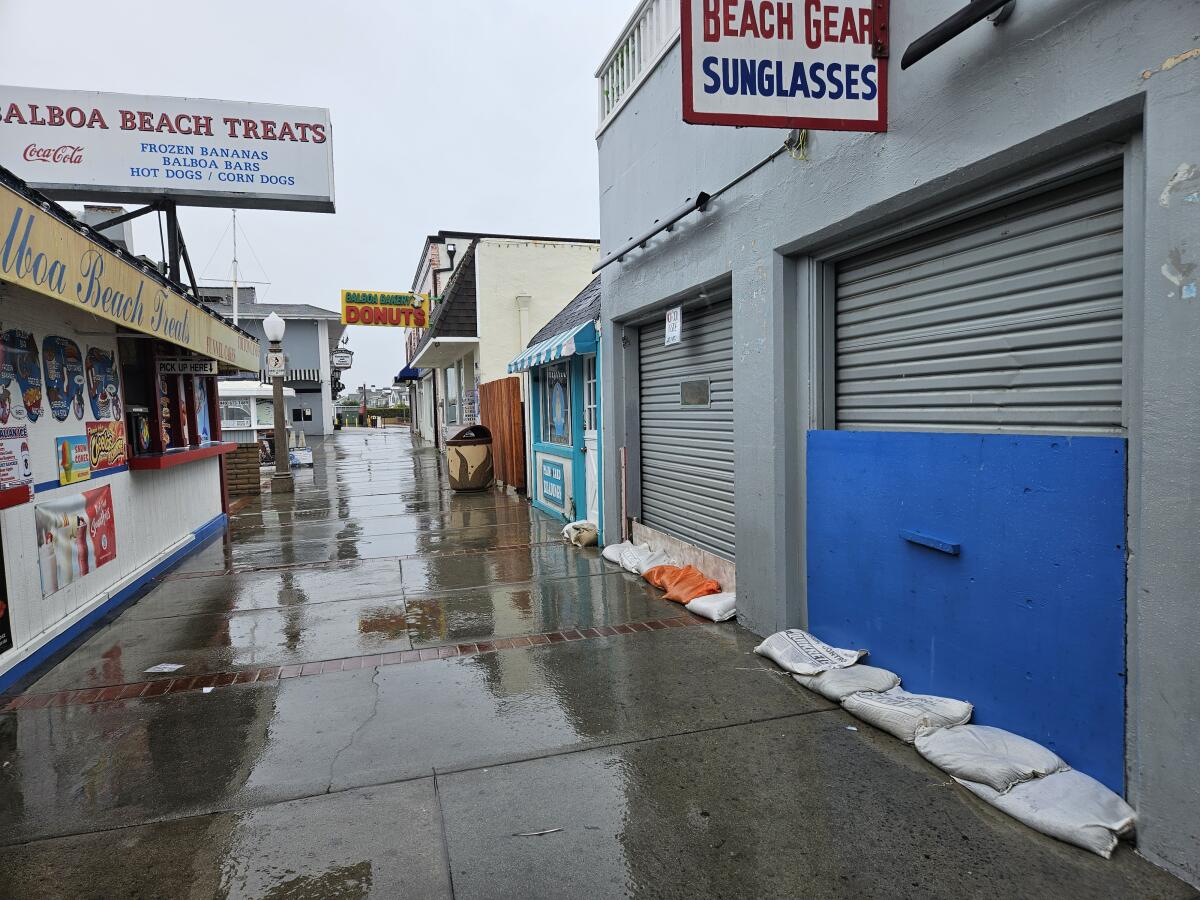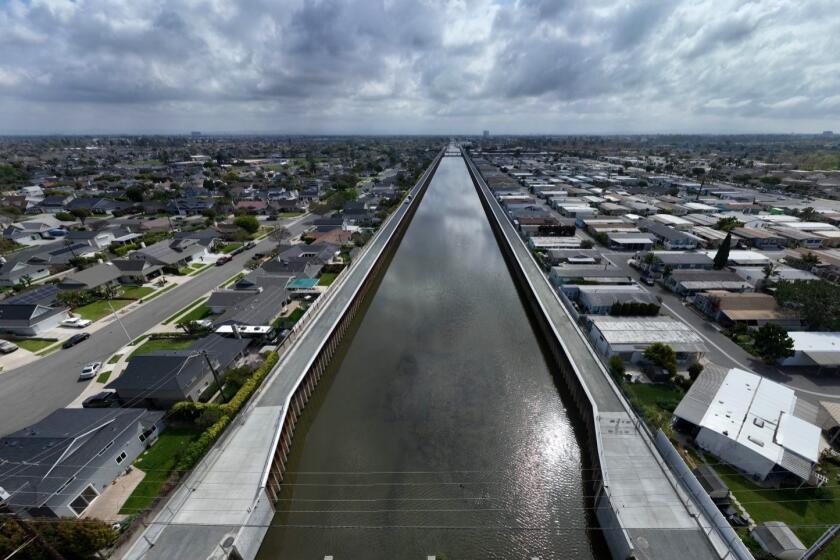Commentary: California should mandate climate change education now

- Share via
We see signs of climate change’s devastating impact all over Orange County — in rising sea levels in our coastal cities, such as in Seal Beach and Newport Beach; wildfires in Laguna Niguel and Silverado Canyon; coastal erosion in San Clemente, where train service has been repeatedly suspended; and the collapsing hillside under Casa Romantica Cultural Center and Gardens. Experts say climate change was a key reason Tropical Storm Hilary was the first to hit Southern California in 84 years. Extreme heat and water shortfalls affect us all.
In response, Sacramento is implementing a slew of bold environmental laws and regulations. However, these much needed changes are unlikely to succeed without buy-in from the public. We need to raise the public’s comfort level with the drastic changes needed to combat climate change. People need to be convinced that a future in which their cars, houses, stoves and garden equipment run on electricity — and that they will need to live sustainably — will not mean a decline in their quality of life. Otherwise, there is going to be a political backlash that will undo these vitally necessary policies.
This effort must begin in school. That’s why California should mandate climate change education in grades K-12 right now.
Ideally, the federal government would take the lead on fostering climate change education. Unfortunately, that’s unlikely. Legislation that would have encouraged teaching climate change died in Congress. Also, don’t look to the presidency for climate initiatives. Now that the Inflation Reduction Act is law, other pressing problems, such as the war in Ukraine and the economy, will top the Biden Administration’s legislative agenda.
Nor should we expect climate action from a Republican president, should one be elected in 2024. At the last GOP debate, the candidates — with the exception of Asa Hutchinson — demurred when asked if climate change is caused by humans. Vivek Ramaswamy joined Donald Trump by claiming that climate change is a “hoax.”
Despite California’s climate leadership, and despite overwhelming support from teachers, parents and students, the state does not require climate change education in its curriculum. Italy and New Zealand do. New Jersey and Connecticut also mandate climate education from kindergarten onward. New Jersey allocated $5 million in funding to ensure the success of this curriculum.
Meanwhile, similar efforts (AB 1922, 1939) introduced by Assemblywoman Luz Rivas (D, AD 43) which would have required climate education in K-12 failed. Her latest effort (AB 285) “modifies the course of study for science, in grades [K-12] to include content regarding causes and effects of, and methods to mitigate and adapt to, climate change and requires that appropriate coursework be offered to students no later than the 2024-25 school year.”
Officials met in Huntington Beach to mark the revitalization of a portion of the East Garden Grove-Wintersburg Channel, part of an effort to reduce the flood risk of 4,500 homes and businesses built on a 74-square-mile floodplain.
AB 285 strives to ensure that K-12 students across California receive education on climate change as part of their core curriculum. (How this is done would be up to the teacher.) Imagine students delving into climate science during science class, discussing the social and economic impacts of climate change in social sciences, exploring climate-related data in math, and expressing their concerns and ideas through arts and literature. This approach does more than just inform; it empowers young minds to think critically, make informed decisions, and become advocates for a sustainable future. It will also, according to the bill’s author, help “cultivate a new generation of climate policy leaders in California as we educate, help prepare, and give our next generation the tools to shape their futures in the wake of our current climate crisis.”
This bill is important to Orange County, especially our coastal cities. Already, the county is grappling with the consequences of inadequate climate mitigation and adaptation planning. Orange County is one of largest counties in California without a Climate Action Plan (CAP). Only six out of 34 cities have them. Meanwhile, the county is predicted to experience an increase in hot days and a disappearing coastline.
Orange County Supervisor Katrina Foley aptly stated, “We are decades behind in planning for the future to protect what we know as this beautiful place we call home.” The consequences of inaction are profound, especially for the youth who will inherit the consequences of decisions made today.
As Orange County Public Schools implement their Sustainability 2030 plan to improve the environment, it is essential that the K-12 curriculum include climate education. The plan requires student input and active participation.
When students comprehend the science behind climate change, the role of human activities, and the interconnection of ecosystems, they are better equipped to engage in constructive conversations about solutions. By exposing young minds to climate-related challenges and fostering critical thinking, we cultivate a generation that is passionate about environmental stewardship.
AB 285 needs to be passed by the legislature and signed by the governor right now. Education is key to addressing the climate emergency.
Fred Smoller is the president and CEO of the Orange County Sustainability Decathlon, which will be held on Oct. 5 through 15 at the OC Fair & Event Center in Costa Mesa. Khang Tran is a research assistant for the Orange County Sustainability Decathlon. He received his master’s of public health in epidemiology with a concentration in Climate Change and Health from the Yale School of Public Health. Visit OCSD23.com.
All the latest on Orange County from Orange County.
Get our free TimesOC newsletter.
You may occasionally receive promotional content from the Daily Pilot.




